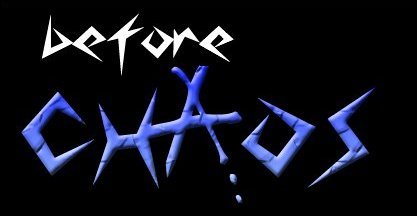It's unfortunate, but we live in a litigious world. Videos of your band playing cover songs on YouTube might get pulled down - or worse, you may find yourself in court...
I really like playing cover songs, but don't like being sued (to be perfectly honest, I've never been sued, but I've heard that it's not much fun). So before posting cover songs online - or even playing cover songs live, I did a little research, and here is what I found:
But first, the disclaimer... I'm not a lawyer, and while I'm hoping this article will help new and young bands, it might be a good idea to do your own research.
Performing Live
In general, bands do not need to pay royalties to perform cover songs. Usually, this is the responsibility of the venue. Usually, venues like bars, coffeehouses, etc. will need to pay royalties to music clearinghouses like BMI and ASCAP. Virtually every song published is the last 100 years are registered with one of these clearinghouses. Venues pay a fee for the rights to play that music, and the clearinghouses in turn pay the artists, after taking their cut.
In general, bands do not need to pay royalties to perform cover songs. Usually, this is the responsibility of the venue. Usually, venues like bars, coffeehouses, etc. will need to pay royalties to music clearinghouses like BMI and ASCAP. Virtually every song published is the last 100 years are registered with one of these clearinghouses. Venues pay a fee for the rights to play that music, and the clearinghouses in turn pay the artists, after taking their cut.
Most venues that regularly have live music will have paid for the rights for most cover songs. Occasionally, I have seen venues that will only pay for one clearinghouse (i.e. ASCAP) - this means that bands performing here may have to adjust their set list to songs in that clearinghouse's catalog.
Distributing Recordings
Making cover songs available on the internet or on CD is a different story. The band is responsible for obtaining a license and paying royalties. The type of license required is called a mechanical license. This license allows you to distribute your band's audio recording of another artist's copyrighted song. Fortunately, US copyright law makes this license compulsory - that is, the copyright holder (usually an agent or publisher for the original artist), cannot stop you from obtaining the license.
Making cover songs available on the internet or on CD is a different story. The band is responsible for obtaining a license and paying royalties. The type of license required is called a mechanical license. This license allows you to distribute your band's audio recording of another artist's copyrighted song. Fortunately, US copyright law makes this license compulsory - that is, the copyright holder (usually an agent or publisher for the original artist), cannot stop you from obtaining the license.
The law also specifies how much royalties you must pay to the copyright holder. For basic internet streaming, the royalty rate is 1¢ per stream. For downloads or physical copies, the royalty rate is 9.1¢ per song for songs under five minutes, or 1.75¢ per minute for songs over five minutes.
While it is possible for you to find the copyright holder by searching the internet - ASCAP and BMI make this information available on their websites - and then contacting the holders to inform them of your intent to cover their song(s) - and then send them a check every month... it is probably a lot easier to go through a turnkey company like Limelight.
Limelight charges a $15 fee per song (less if you buy several songs at once), and allows you to pay the royalties upfront. We used this service to buy rights to distribute five songs via internet streaming, and paid about $20 per song. The whole process took a little over two weeks - during this time, I assume Limelight looks up the copyright holder, contacts them and sets up the payments to them.
Once you have secured rights to distribute the cover song, then you can upload the recordings to sites like ReverbNation, Facebook, MySpace, SoundCloud, etc.
Videos
Unfortunately, videos are not covered under the mechanical license. If you want to post a video of your band playing a cover song - or even just a picture/text to go along with the music, that requires a synchronization license - i.e. you are synchronizing video to the audio. Synch licenses are not compulsory, so you would need to negotiate a royalty rate with the copyright holder. You can contact the copyright holder to acquire synch license rights - again, BMI and ASCAP can help you find the copyright holder - or you can work through various agencies to acquire the license.
Unfortunately, videos are not covered under the mechanical license. If you want to post a video of your band playing a cover song - or even just a picture/text to go along with the music, that requires a synchronization license - i.e. you are synchronizing video to the audio. Synch licenses are not compulsory, so you would need to negotiate a royalty rate with the copyright holder. You can contact the copyright holder to acquire synch license rights - again, BMI and ASCAP can help you find the copyright holder - or you can work through various agencies to acquire the license.
I hope this helps - if you have any comments or questions, please let me know.
Thanks,
BC
BC

Here is another good article on licensing cover songs:
ReplyDeletehttp://www.makeitinmusic.com/licence-cover-song/